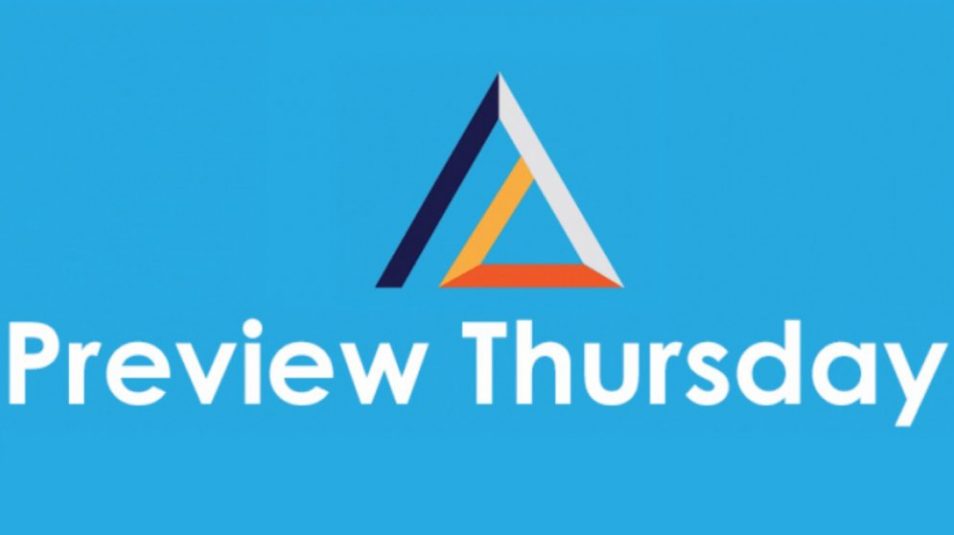Preview Thursday: Intelligent Disobedience
The following is an excerpt from Intelligent Disobedience: Doing Right When What You're Told to Do is Wrong.
 Many, if not most, orders to do the wrong thing concern meeting numerical quotas or goals. Years ago, the guru of Quality Management, W. Edwards Deming, warned us of this pitfall. He argued against tying job performance ratings and monetary rewards to numerical goals. These exert pressure up and down the system to make the numbers look good, instead of continuously improving the work processes and systems to achieve true quality.
Many, if not most, orders to do the wrong thing concern meeting numerical quotas or goals. Years ago, the guru of Quality Management, W. Edwards Deming, warned us of this pitfall. He argued against tying job performance ratings and monetary rewards to numerical goals. These exert pressure up and down the system to make the numbers look good, instead of continuously improving the work processes and systems to achieve true quality.
At this writing, the pressure to meet numerical performance goals is roiling the entire education profession. It is fine; it is necessary to collect a certain amount of data on any system and its outputs in order to analyze where improvement is needed. It is generally deadly to overdo this and to tie awards and penalties, or even employment itself, to those metrics.
As attempts to improve education in the United States began focusing on the results of standardized tests to measure student, teacher, and school success, the pressure magnified at all levels to do the wrong thing. News outlets across the country reported indictments, confessions, and trials of educators who succumbed to the pressure and found a multitude of unethical ways to raise test scores. They were afraid of losing their jobs. When exposed, many lost their jobs anyway or found themselves in courtrooms facing the legal consequences of fraud.
You who are reading this are almost certainly engaged in a system with short-term incentives based on numerical targets and metrics, either in your work life, your student life, or as a parent of a student in the educational system. These are situations in which you would do well to pay close attention to pressures exerted by short-term incentives. You may need to examine your own values and actions in relation to these incentives. What values are you willing to compromise to get a bonus, have your child get an outstanding report card, or for your school to get extra funding?
It is easy for us to be outraged at others’ behavior, but we, too, are susceptible to these pressures. Unless we are willing to confront ourselves on these matters, we are vulnerable to colluding with authorities who are also afraid of the penalties and tempted by the rewards tied to the metrics. Once we have confronted ourselves effectively and are ready to take a stand, we need to be mentally prepared to experience pressure from authorities who are also caught up in this system.
Some variation of the following steps is needed when faced with new or sudden instructions whose risks may not involve immediate consequences, but contain the potential for serious mid- or long-term consequences.
1. Let yourself register the surprised, somewhat stunned reaction you are feeling to being asked to do something wrong, something unethical or in poor judgment.
2. Resist the reflex to rationalize what you are being asked to do in order to resolve your discomfort; the discomfort is your ally in doing the right thing.
3. Slow down the action. Use language and body signals to do so: put up a hand like someone directing traffic and say, “Hold on a minute. . . .”
4. Give your higher functioning mental processes a chance to recover from the shock of the inappropriate order.
5. Examine what values are being violated and what are the real risks of complying, not just the short-term risk of not complying.
6. Ask tough, relevant questions about the orders you are receiving. Maybe you misinterpreted what you were being asked to do. Maybe you didn’t. You have a right and an obligation to clarify the order.
7. Do not be assuaged by responses that are not answers, by attempts to rationalize the order, to shame you as being the only one questioning the order, or by promises of future correction of violations that are being ordered now.
8. Engage the authorities giving the order; help them see how it is not in their true interest to proceed in that direction; offer reasonable alternatives.
9. If you can’t stop the leader from stepping off the curb into oncoming risk, refuse to join him or her in doing so. Understand the danger of saying “yes” when you should say “no.”
10. Accept the short-term consequences of your choice. Appreciate the long-term consequences you most likely avoided.
 Ira Chaleff is an author, speaker, workshop presenter, and innovative thinker on the beneficial use of power between those who are leading and those who are following in any given situation.
Ira Chaleff is an author, speaker, workshop presenter, and innovative thinker on the beneficial use of power between those who are leading and those who are following in any given situation.
He is the founder of the International Leadership Association’s Followership Learning Community and a member of the ILA board of directors. He is also the founder and president of Executive Coaching & Consulting Associates, which provides coaching, consulting, and facilitation to companies, associations, and agencies throughout the Washington, DC, area. He is chairman emeritus of the nonpartisan Congressional Management Foundation, and has provided facilitation to nearly one hundred congressional offices to improve their service to constituents. He is adjunct faculty at Georgetown University, where Courageous Followership is part of the core curriculum in its professional management training for staff.
Ira holds a degree in Applied Behavioral Science, and is a Board Certified Coach from the Center for Credentialing and Education.







